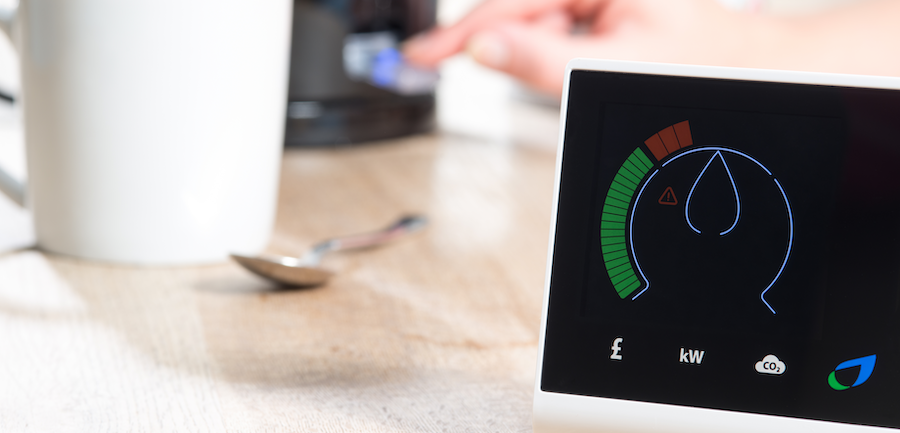
The powers that be tell us that smart meters are essential to save consumers money and preserve the planet. But do their claims stand up? Should we be spending time and money on rolling them out to the UK before we’re ready?
Smart meters that can show consumers how much power they use while communicating directly with energy suppliers, are generally seen as a good thing. That’s why a directive from the European Parliament demanded that 80% of consumers should have them in their homes by 2020. That’s why the UK has pledged to follow this plan despite leaving the European Union and a myriad of technical problems.
However, there is evidence that smart meters don’t bring all the benefits that experts initially thought, while the rollout itself is also proving to be expensive and environmentally wasteful. At Meter Corp, we have thought for a long time that rather than persevering with this mandatory replacement of working energy meters, we wait until those meters are at the end of their life. Then, we replace them with smart meters.
There are several key reasons why.
Do smart meters save consumers money?
When the smart meter rollout was first planned, there was no specific figure put on how much money consumers could save if they had smart meters. In 2014, the Department of Energy and Climate Change finally offered an estimate, that the average household would save £26 on their gas and electricity bills in 2020, rising to £43 in 2030.
Over time, that figure dropped as experts found out more about how smart meters affect consumption. Now, it’s a saving of £11.36 per year – a sharp fall.
Because the rollout has been a bit of a disaster, years behind schedule and beset with technical issues (including having to replace already installed smart meters when it emerged that they can’t talk to energy companies if a consumer switches their supplier), it has cost a lot more than initially planned. The price is currently thought to be £4 billion and rising – a far cry from the £2 billion allocated initially. The energy companies cannot entirely bear this price. They will undoubtedly be passing these increased costs on to the consumer via higher prices, reducing the financial benefits of smart meters.
Do smart meters help reduce consumption?
If consumers can reduce energy consumption, it will have a beneficial effect on the environment and help to stop climate change. Smart meters are seen as a powerful tool to achieve this goal. The view is that by seeing a visual representation of the energy they use, people will change the behaviour and consume less.
Unfortunately, there is little evidence that this assumption is correct. People now know that on a Friday or Saturday night, with the TV and all the lights on, their consumption is very high. However, they’re not going to go to bed at 9 pm just to save some energy.
There are ways that consumers can monitor their consumption without the need for a smart meter. You can buy energy monitors on Amazon and fit them yourself, without the expense of an engineer. If consumers want to see how much power they use, there are easier ways to do it.
Finally, whatever the amount of energy that consumers save due to smart meters is, it is insignificant compared to what they could save by using other methods, such as fitting home batteries. The time and money spent on the rollout is misplaced and could be better allocated to other areas.
Is the smart meter rollout doing more harm than good?
The principle of the UK’s smart meter rollout is that having a smart meter in your home is so beneficial, it is worth spending time, money and resources to rip out your existing energy meters, that work perfectly, and replace them. There cannot be many examples in business where something that works perfectly is destroyed just because it is old. Regardless of the overstated benefits of smart meters, the rollout is a wasteful process.
Think of the materials that make the old meters and their new smart equivalents. You are losing the materials that made up the old meters; some of it is recycled, but much ends up in landfill. Then, more materials are needed to make the new meters. There is also the energy required to manufacture the meters, the emissions involved in shipping and installation in the home.
Also, to meet the demand to fit more meters, arbitrarily laid down by the Government, energy companies have had to employ new, less experienced engineers to install meters in people’s homes. This is an unnecessary risk which will undoubtedly lead to accidents.
A better solution
With all these facts emerging, surely it is a better solution to wait until a consumer’s energy meter has come to the end of its life, before replacing it with a new smart meter?
The pace required to meet the Government’s current targets is four times higher than replacing meters when they actually need to be replaced. Our solution is more cost-effective, better for the environment and safer for the consumer. It would relax the workload on the installation and recycling teams. It would mean that energy companies could focus on more important things, such as the switch to renewable energy.
Perhaps the Coronavirus crisis, which has all but halted the rollout, making the already slim chances of hitting the rollout target an impossibility, will lead to a rethink? We can only hope that this is the case.
